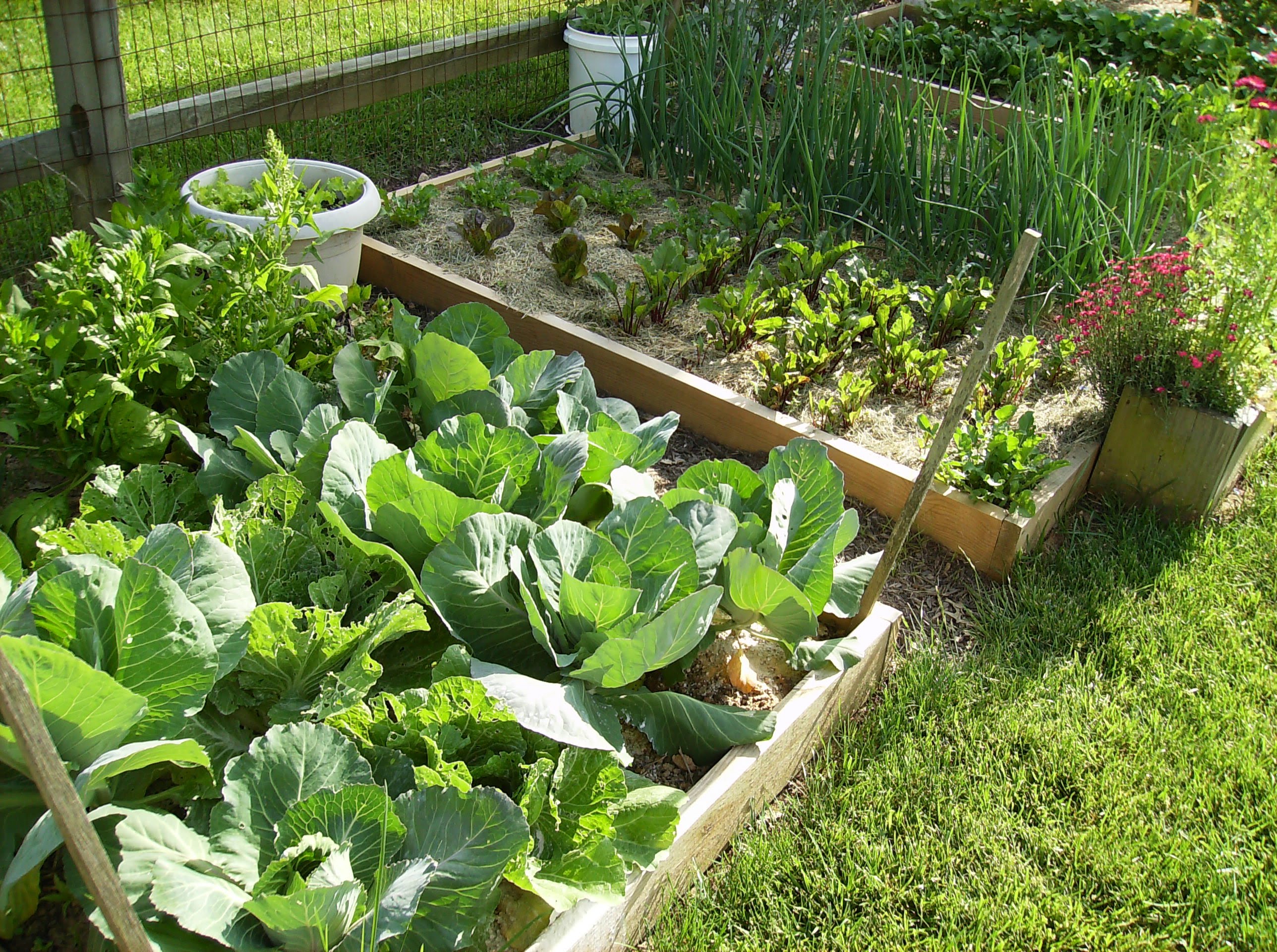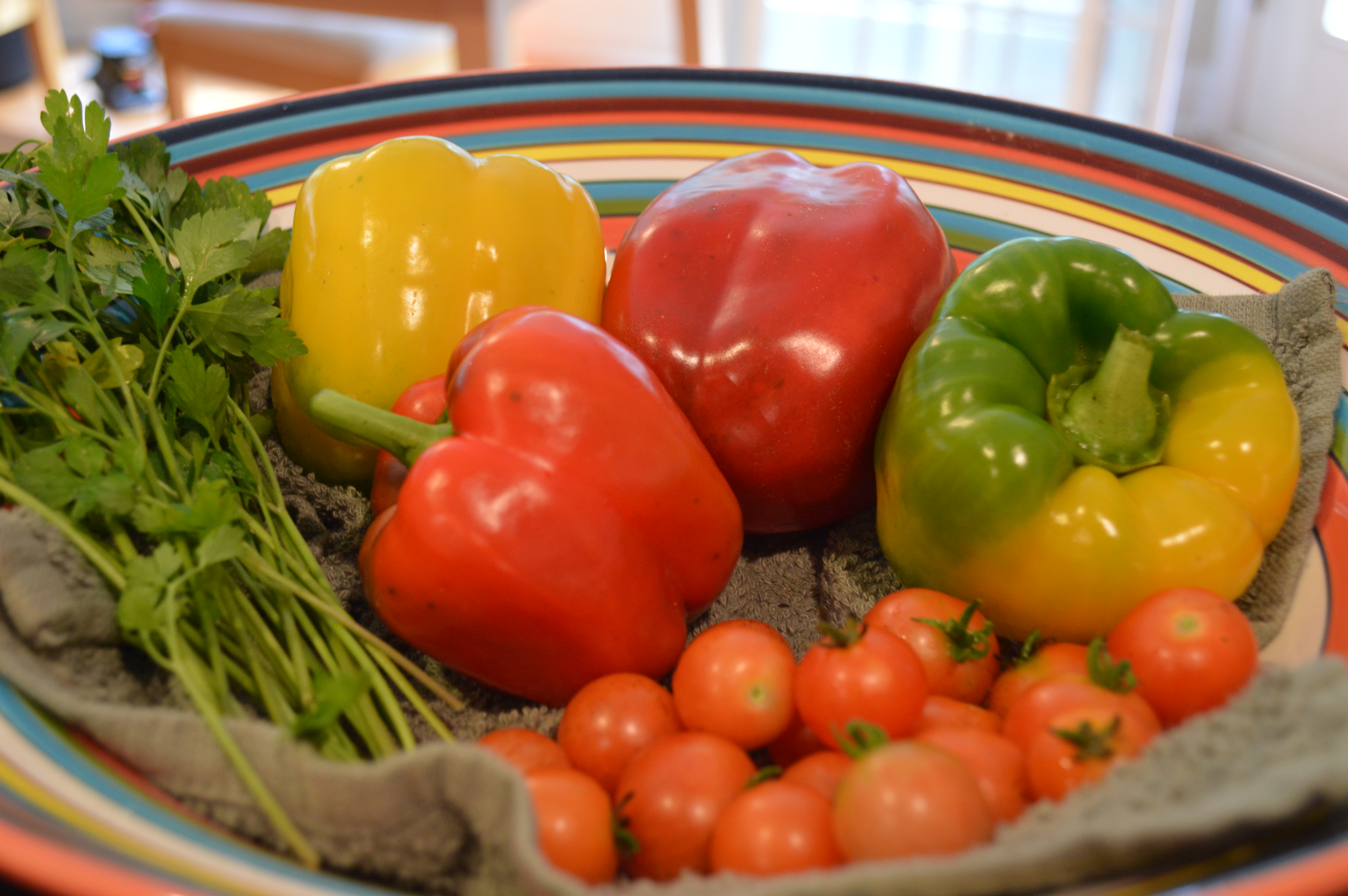 On my other blog, Insert Something Creative, I recently posted “New Plants + Bad Storms = Rough Start to Gardening” which chronicles the first several weeks of life in my raised bed vegetable garden.
On my other blog, Insert Something Creative, I recently posted “New Plants + Bad Storms = Rough Start to Gardening” which chronicles the first several weeks of life in my raised bed vegetable garden.
A coworker recently asked why I decided to take up vegetable gardening when I could just get veggies at the grocery store. “You wouldn’t have to worry about the weather and maintenance and all that,” he said. It’s a good question. Here is a longer version of the answer that I gave him:
Growing organic produce is cheaper than buying it at a grocery store. At Kroger, one red or yellow organic bell pepper costs $4. At Park Seed Co., one pack of pepper plant seeds costs $4 and includes 25 seeds. I can easily get 12 plants out of that. Last year–which was a BAD year for gardening and my rookie year–each plant yielded at least four large peppers.
By gardening, I get 48 bell peppers for only $4. I’ll be generous and say it costs me $12, dividing the change in my water bill throughout the season. That’s much better than paying $192 for 48 bell peppers at the store.
Subsistence farming is healthier and more sustainable than commercial monocropping. This is an article within itself so I’ll revisit the idea later. One type of vegetable for grocery stores are grown over acres of land year after year after year. This type of farming makes plants more susceptible to disease and pests so more pesticides and non-organic fertilizers are needed. The constant farming depletes the soil. The chemical “solutions” runoff into the surrounding groundwater. Wildlife, plants, and insects that aren’t a threat to the farm are poisoned and often experience slowed population growth.
Also annoying, the produce at commercial farms are plucked before they’re ripe and most nutritious, so that they have time to be shipped without spoiling. In some cases, veggies are gased to ripen (instead of sun ripened) while they’re on the truck; this effects the texture and flavor of the fruit or vegetable in many cases. What little flavor and nutrients the under-ripe produce has is further depleted during shipping and depletes even more while sitting on grocery store shelves. Did I mention all of the fuel used to ship the produce to grocery stores? All that carbon is no bueno for our air.
An organic subsistence farm or small garden doesn’t do that sort of damage! My little garden allows my family to enjoy fresh, nutritious produce while placing less of a burden on the environment. Since my garden is limited, we still supplement with organic produce from markets and grocery stores but hopefully that can change in the future. Every step forward counts!
Gardening is therapeutic. Every morning before work, I go outside and chill–I mean, work in my gardening. It’s a very relaxing experience. Sure, prepping the garden is a good workout (shoveling and raking are great for the back and obliques) but that sort of work only last a few days. For the rest of the season, I go out with a mug of coffee to do a little watering, listen to the birds, and watch nature do its thing. It’s a great way to maintain an appreciation for nature, stay active, and relax before the hectic work day.
Waiting for vegetables to grow requires patience and trust in powers that are beyond me, two things that I lack on a daily basis. It’s also teaching me to worry less. Granted, I still check my weather app like mad before inclement weather but I’m learning that everything works out one way or another.
And that, my friends, is why I’ve become a gardener. Read more about my organic gardening adventures at Insert Something Creative.